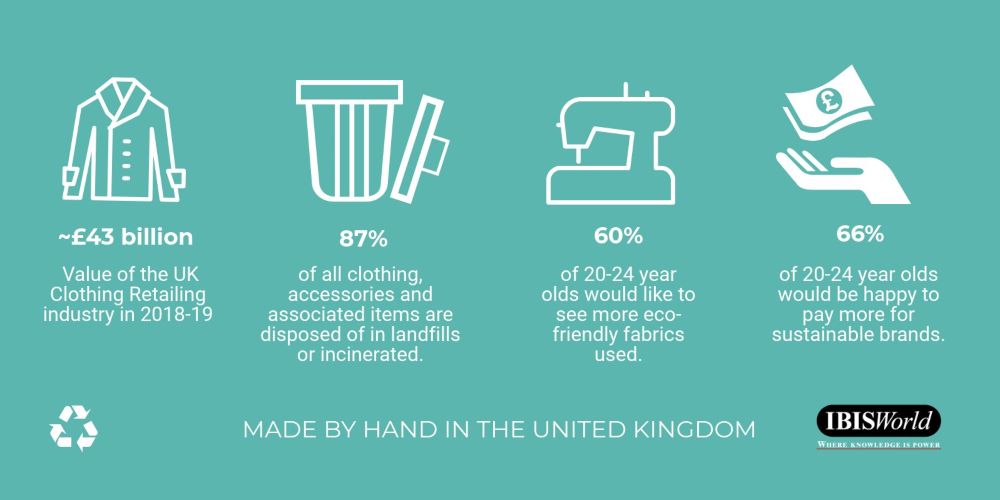How much are we, the consumer, willing to change our own lifestyle to help reduce the environmental impact of the fast fashion industry? What makes an ethical fashion consumer?
By Nadin Moustafa, PhD student in the Department of Chemical Engineering.
Many brands are working towards increasing sustainability in their supply chain by using sustainable cotton and/or fabric initiatives to reduce water, energy and chemical use. Some brands are implementing new dyeing technologies to reduce water consumption as well as other energy and chemical saving schemes throughout their supply chain. Such work has decreased carbon and water footprints of clothing in the UK by 8% and 7%, respectively, since 2012.

The ethical fashion consumer
So the industry is working towards decreasing its environmental impact. But clothes consumption in the UK increased by 10% since 2012. And not only are we buying more clothes – we are also discarding our clothes a lot more quickly. A Drapers Research survey from 2019 showed that although consumers are more aware of the problem, we are not necessarily willing to pay extra for sustainable products. Our behaviour is actually more selfish than we’d like to think. Rational models of consumption assume that individuals make choices by balancing costs and benefits. Hence, ideally, an ethical consumer would consider the best outcome of costs and benefits for them AND the environment. However, real consumption and especially fashion consumption is not ideal. In fact, it is quite irrational. We buy clothes for many reasons, such as pleasure and excitement, setting status and sometimes just because it is too cheap not to!
We might assume that consumers would take decisions to decrease their environmental impact if they are more aware of the devastating environmental effects. However, research shows that this is not necessarily true. In fact, being bombarded with more information tends to reduce the influence of ethical issues due to the complexity of information faced by the consumer. The amount of different information coming from different sources makes it easier for a consumer to dismiss the issue and just buy that awesome shirt on sale.
An alternative approach is to recognize that fast fashion is desirable and hence, develop and innovate methods that would enable the industry to decrease its environmental impact economically whilst maintaining fast fashion to the consumer.
Ethical fashion consumer choices
So what can I as a consumer do to help towards this problem today? Here are some of many suggestions!
- Choose fibres with low water consumption during production, such as linen or recycled fibres, since:
- The fashion industry uses 5 trillion litres of water every year, while 750 million people in the world do not have access to water.
- Choose natural or semi-synthetic fibres. Wash clothes only when you need to and at a lower temperature, as:
- 190,000 tons of textile microplastic fibres go into the ocean every year.
- Buy fewer items, invest in better quality and recycle your clothes, because:
- The equivalent of 1 garbage truck of clothes is dumped into a landfill every second.
- 10% of global emissions comes from the fashion industry.
- 400% more carbon emissions are produced if we wear a garment 5 times instead of 50 times.
- Choose organic fibres, support sustainable brands, because:
- The fashion industry uses 23% of all chemicals produced worldwide.
- 20,000 people die of cancer and miscarriages every year as a result of chemicals sprayed on cotton.
- Cotton production uses 24% and 44% of insecticides and pesticides produced globally, respectively.
Your ethical fashion consumption
So what are you willing to change? Where are you contributing to the environmental cost of fast fashion, and where could you most easily reduce your impact? Perhaps you could look into recycling your clothes, or buying more second-hand, or buying for quality/durability rather than up-t0-the-minute style. Now that you know what the problem is, you know what you are doing to contribute to it. It’s up to you to make a difference!
Read our previous blog posts: how the fashion industry needs to urgently change, what changes are needed to make fashion more sustainable and what initiatives brands are taking to be more sustainable.